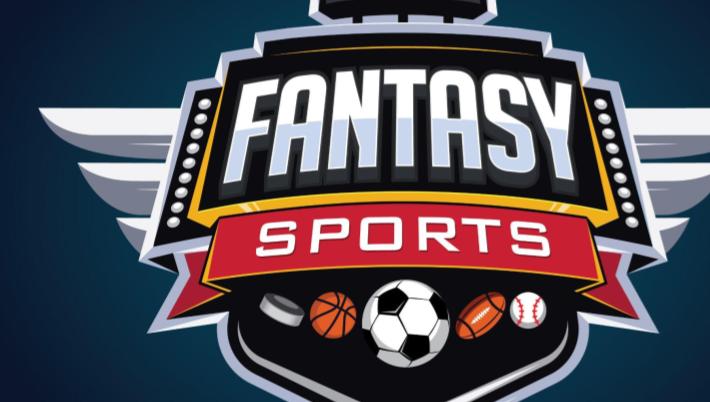As sports betting expands in the United States, concern is growing that regulators in a number of states aren’t enforcing laws regarding which operators are being allowed to operate sportsbooks and other Vegas casino online casino gambling activities.
Licensed operators are incensed at the way that regulators in a number of states have been turning a blind eye to unlicensed sports gambling operators who operate freely on the web without any oversight whatsoever under the title “fantasy sports sites.” These unlicensed sportsbooks operate without any type of regulatory oversight and don’t pay taxes or license fees to the states in which they operate.
How do they get away with this type of activity? They call themselves “fantasy sports” sites because, they say, they offer against-the-house prop bets which allows them to proceed within a broad definition of fantasy sports. Fantasy sports activity is significantly less-regulated than is sports betting so despite the outrage of licensed sports betting operators, the practice continues unabated.
Fantasy Sports
Even though fantasy sports often involve betting on the outcome of a competition, it’s in a different legal category than sports betting. The courts have, by and large, accepted the definition of the Unlawful Internet Gambling Act that defines fantasy sports as requiring “winning outcomes [that] reflect the relative knowledge and skill of the participants." A sportsbook has participants competing against the house but in fantasy sports, participants compete against the host site.
But, against-the-house contests do not have participants competing against other participants. Instead, they compete against the host site.
For operators of the questionable sites, labeling themselves as a fantasy platform allows them to operate sports betting under the guise of a fantasy site. Fantasy sites such as DraftKings and FanDuel got their start as fantasy sites but began operating as legal sportsbooks when sports betting was legalized by SCOTUS in 2018.
But even when they were operating only fantasy sports contests, they properly segregated entry fees so they would always have positive net revenue to pay out to winners. One concern with the “against-the-house” platforms is that they might not be able to pay contest winners if their revenues don’t reflect both sides of each given bet evenly.
Old Idea, New Presentation
The against-the-house prop betting sites aren’t new – Bet America, FantasyUp, HotRoster and DraftDay did some business in 2015 under the title “fantasy sports” until they failed to obtain the funding that they needed to continue so went out of business when the feds began to investigate fantasy sports in 2015/2016.
But the idea didn’t die and now, against-the-house companies are once again operating, though this time they are taking sports bets even while calling themselves “fantasy sports” operators.
Many observers are puzzled at why, neither state regulators nor licensed competitors are targeting the questionable activities of these under-the-covers operators. The unlicensed operators are costing states a lot of money in lost taxes and licensing fees and they are costing the licensed operators customers.
Fantasy Sports Market
Fantasy sports is a highly competitive market. Today, the market is valued at $20.69 billion USD and is expected to reach $48.07 billion USD by 2027 with a 12.8% CAGR over the period. The Fantasy Sports Trade Association (FSTA) estimates that 56.8 million people engage in fantasy sports contests with the average annual spend on fantasy games being $465 per person.
Factors influencing the growth include the growing investment in online gaming of major firms, increasing technology penetration of the internet and smartphones and acceptance by government regulators and judicial officials who now see fantasy sports as less of a gambling game and more of a contest that involves skill and knowledge.
In America, football is the favorite fantasy sport followed by baseball, basketball and hockey. After much legal wrangling, American regulators have exempted fantasy sports from the Unlawful Internet Gambling Enforcement Act.
Today, major league teams and leagues participate in promoting fantasy sports –Sunday morning television features as much fantasy football coverage as actual NFL coverage and MBL has partnered with fantasy site DraftKings on a daily fantasy game.
In 2022, most people are most familiar with Daily Fantasy Sports (DFS) which differs from traditional fantasy sports where players would pick their team over the course of a season with no prizes involved. With DFS, players select a team for a day or a week and win prizes based on the performance of the team that they assembled. Today, most fantasy sports competitors play DFS.
Legalities
Legally, fantasy sports is basically legal but cannot make bets over the phone or Internet based on the Interstate Wire Act of 1961. It is for the courts to decide whether the Wire Act still pertains since the Wire Act applies to “games of chance” which, courts have ruled, fantasy games are not considered gambling.
The Unlawful Internet Gambling Enforcement Act (UIGEA) makes it illegal to gamble over the Internet but UIGEA includes a specific exemption for fantasy sports where the outcome is determined by skill and knowledge, where the outcome is based on statistical results of real-world athletes, where the value of prizes is not connected to the number of players and where outcomes are not determined by any one individual player’s performance or on the score of the game.
State regulators maintain the most control over the determination of which activities constitute illegal gambling. In the absence of clear judicial guidance, licensed operators are looking to the states to clarify the status of the against-the-house contests.

